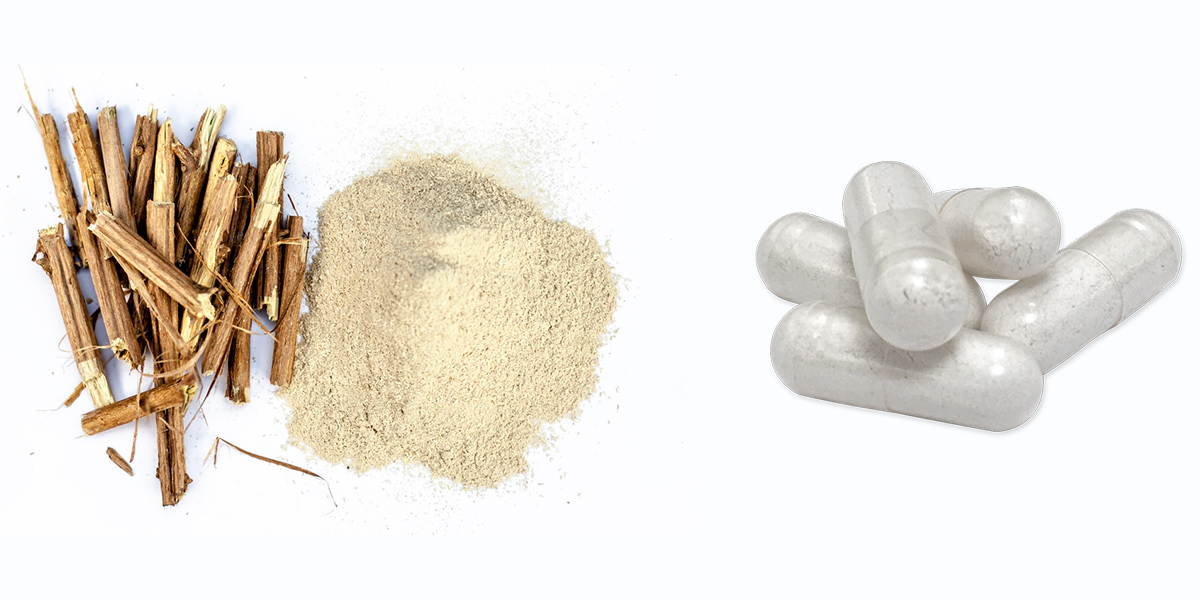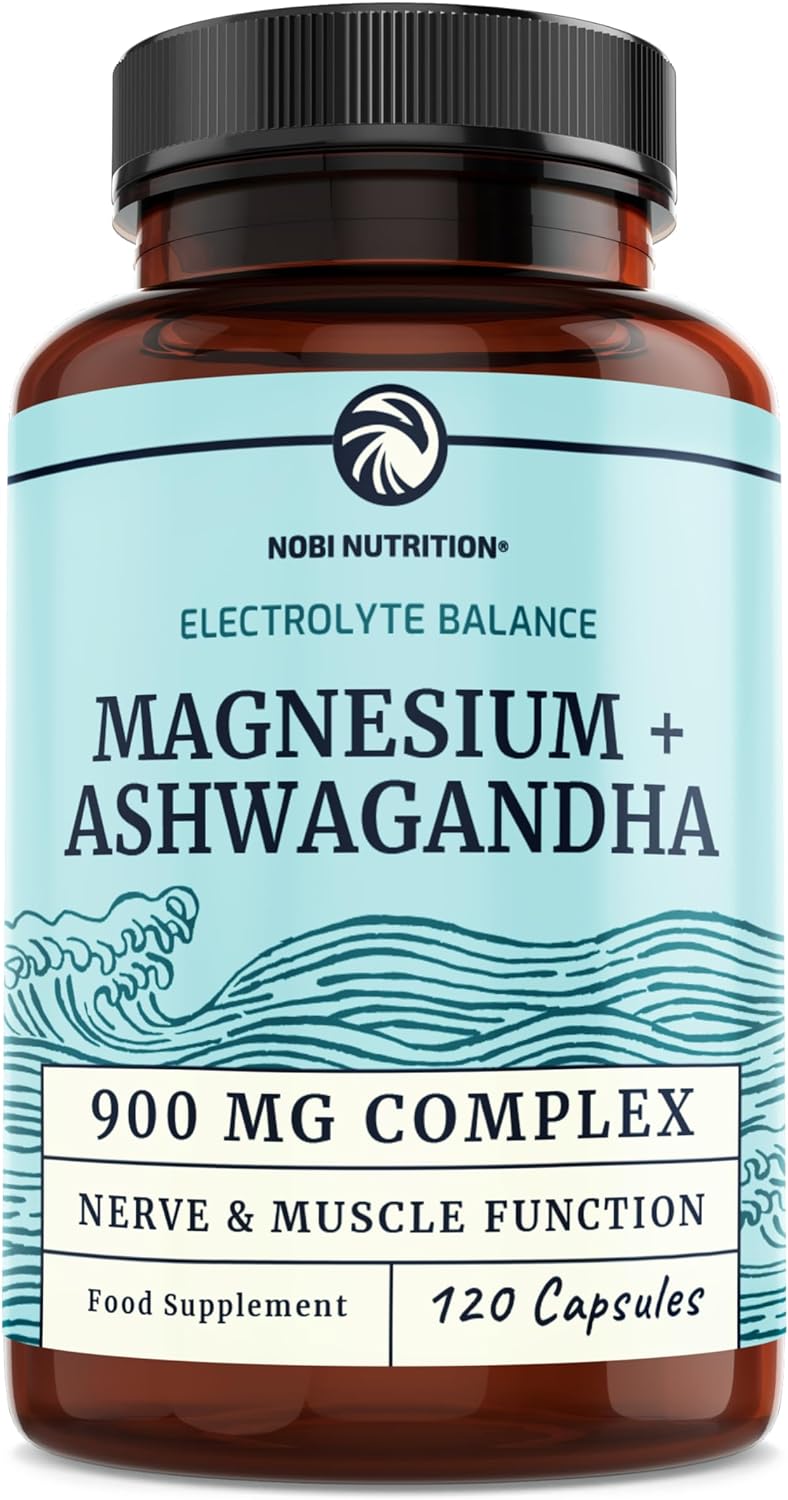Can We Take Ashwagandha And Magnesium Together

In a world increasingly seeking natural solutions for stress and sleep woes, the combination of ashwagandha and magnesium has emerged as a popular topic. But is this pairing a synergistic solution, or could it potentially lead to unforeseen health consequences? The answer, while complex, lies in understanding the individual properties of each supplement and how they might interact within the body.
This article delves into the science behind ashwagandha and magnesium, examining their individual benefits, potential interactions, and expert opinions on their combined use. It aims to provide readers with a comprehensive understanding of whether taking these two supplements together is a safe and effective strategy for promoting well-being.
Understanding Ashwagandha
Ashwagandha, also known as Withania somnifera, is an adaptogenic herb used in traditional Ayurvedic medicine for centuries. It's known for its ability to help the body manage stress, improve energy levels, and enhance cognitive function. The herb's bioactive compounds, including withanolides, are believed to be responsible for these therapeutic effects.
Research suggests ashwagandha can help lower cortisol levels, the hormone associated with stress. Some studies have also shown it may improve sleep quality, reduce anxiety, and enhance muscle strength and recovery. However, it's crucial to note that the quality of ashwagandha supplements can vary significantly, and long-term effects are still being studied.
Decoding Magnesium
Magnesium is an essential mineral involved in hundreds of bodily functions, including muscle and nerve function, blood sugar control, and blood pressure regulation. It also plays a vital role in energy production and DNA synthesis. Many people are deficient in magnesium due to dietary factors and modern lifestyles.
Symptoms of magnesium deficiency can include muscle cramps, fatigue, headaches, and sleep disturbances. Supplementation with magnesium can help alleviate these symptoms and promote overall health. Different forms of magnesium exist, such as magnesium citrate, magnesium oxide, and magnesium glycinate, each with varying absorption rates and effects.
The Potential Synergies and Interactions
The appeal of combining ashwagandha and magnesium lies in their potentially complementary effects. Both are known to promote relaxation and improve sleep. The question remains: can these benefits be amplified when taken together, and are there any risks involved?
Theoretically, the combination could be synergistic. Ashwagandha's stress-reducing properties might enhance magnesium's ability to relax muscles and improve sleep quality. However, there isn't extensive research specifically examining the combined effects of these two supplements.
One potential concern is that both ashwagandha and certain forms of magnesium can have a mild sedative effect. Taking them together could theoretically lead to excessive drowsiness in some individuals. It's important to start with low doses and monitor for any adverse effects.
Expert Opinions and Recommendations
"While there isn't a large body of research specifically on combining ashwagandha and magnesium, both are generally considered safe for most people when taken within recommended dosages," explains Dr. Sarah Miller, a registered dietitian and herbalist.
According to Dr. Miller, "It's crucial to consider individual health conditions and potential interactions with other medications. Individuals with thyroid conditions, autoimmune diseases, or those taking sedatives or anti-anxiety medications should consult with a healthcare professional before combining these supplements."
Other experts emphasize the importance of sourcing high-quality supplements from reputable manufacturers. Third-party testing for purity and potency is crucial to ensure you're getting a safe and effective product.
Dosage and Considerations
Recommended dosages for ashwagandha typically range from 300 to 500 mg per day, often taken in divided doses. Magnesium dosage varies depending on the form and individual needs, but generally falls between 200 and 400 mg per day.
If considering taking ashwagandha and magnesium together, it's best to start with the lower end of the recommended dosage for each supplement. Monitor your body's response and gradually increase the dosage if needed, always staying within safe limits.
Pay attention to the form of magnesium you're taking. Magnesium oxide, for example, is less readily absorbed and more likely to cause digestive upset than magnesium glycinate or magnesium citrate.
Potential Side Effects and Contraindications
Ashwagandha can cause side effects such as digestive upset, nausea, and, in rare cases, liver problems. It's contraindicated for pregnant women due to its potential to induce miscarriage.
Magnesium side effects are typically mild and may include diarrhea, nausea, and abdominal cramping, especially with higher doses. Individuals with kidney problems should consult with a doctor before taking magnesium supplements.
Drug interactions are another crucial consideration. Ashwagandha may interact with immunosuppressants, thyroid medications, and sedatives. Magnesium can interact with certain antibiotics, diuretics, and proton pump inhibitors.
The Future of Research
More research is needed to fully understand the combined effects of ashwagandha and magnesium. Specifically, studies should investigate the optimal dosages, potential benefits for specific populations (e.g., individuals with anxiety or insomnia), and long-term safety.
Clinical trials comparing the effects of ashwagandha and magnesium alone versus in combination would provide valuable insights. This research should also explore the potential mechanisms by which these supplements interact.
Conclusion: A Cautious Approach
While the combination of ashwagandha and magnesium holds promise for promoting relaxation and improving sleep, it's essential to approach this pairing with caution. Consult with a healthcare professional before starting any new supplement regimen, especially if you have underlying health conditions or are taking medications.
Prioritize high-quality supplements, start with low doses, and monitor your body's response closely. By taking a mindful and informed approach, you can determine whether this combination is right for you.
Ultimately, the decision of whether to take ashwagandha and magnesium together should be based on individual needs, health status, and professional guidance. A balanced diet, regular exercise, and stress management techniques remain the foundation of overall well-being. Supplements, when used appropriately, can be a helpful adjunct to a healthy lifestyle, but they should not be considered a substitute for it.


















